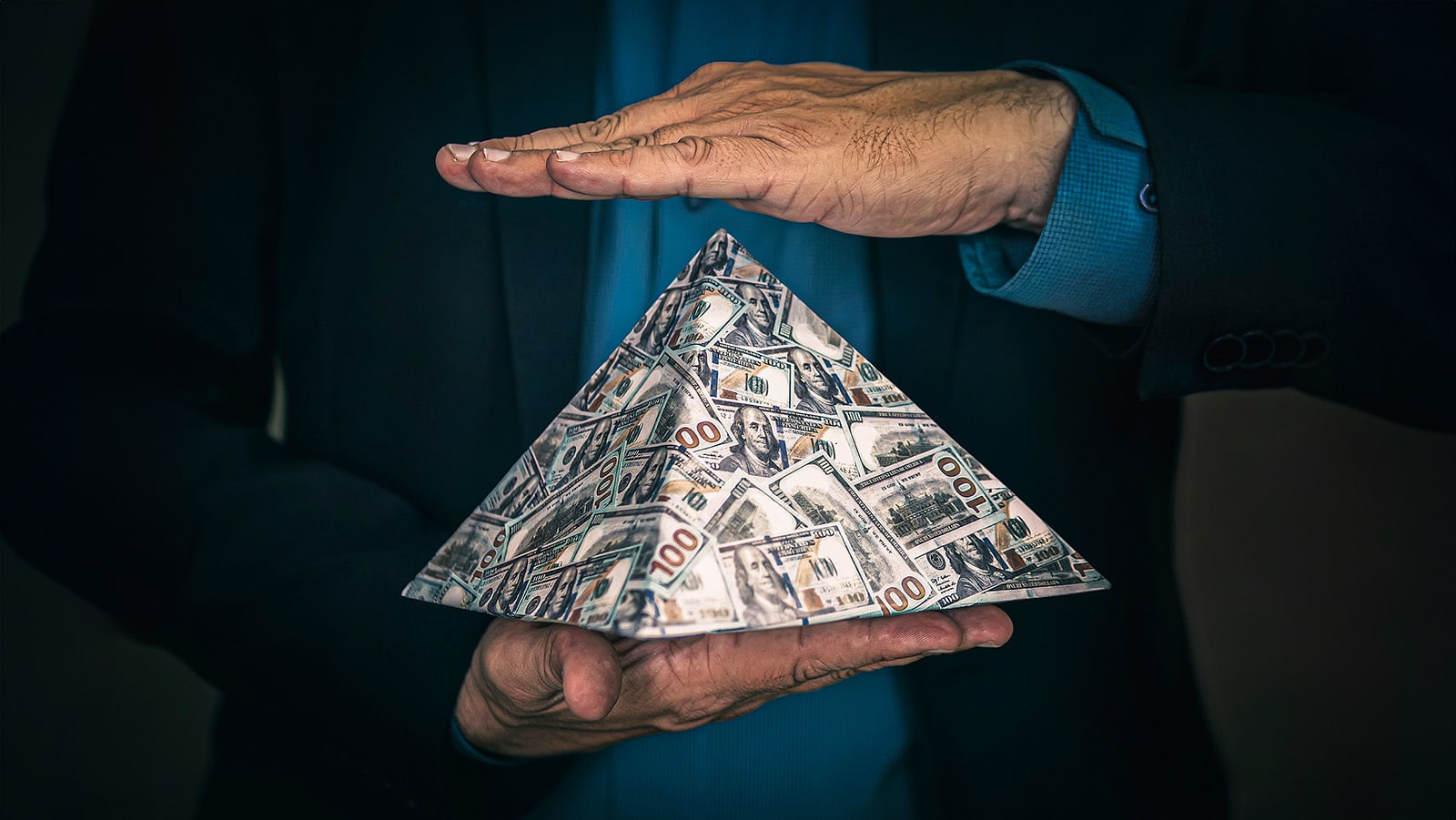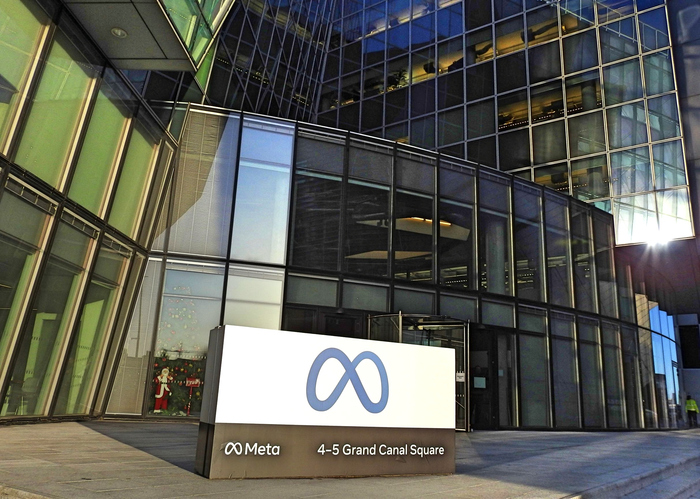February 10, 2026

This information is provided for educational purposes only by Kohn, Kohn & Colapinto and does not constitute legal advice. No attorney-client relationship is created by accessing this content. Laws and regulations may change, and this material may not reflect the most current legal developments. If you believe you have a whistleblower claim, consult a qualified attorney to discuss your specific circumstances.
A High-Yield Investment Program (HYIP) is a fraudulent investment scheme that promises unrealistic returns, often exceeding 100% of the initial investment, while actually operating as a Ponzi scheme using new investor funds to pay existing investors.
This promise of a guaranteed return is the motivator to lure investors (mostly beginners) into the scheme. The money received by the fraudster, however, isn’t invested. It’s used to pay for lavish personal expenses, and to pay existing investors their fake returns to keep the scheme running.
In essence, a high-yield investment program is basically a Ponzi scheme. The scheme needs new investors to pay initial investors, otherwise it collapses. It’s in the fraudsters best interest to get new investors, and in an investors best interest to avoid such schemes!
Continue reading our guide to learn more about this scheme, and what you can do to report one to the Securities and Exchange Commission (SEC) or the Commodities Futures Trading Commission (CFTC) if you or someone you know has been a victim. Substantial monetary rewards of between 10% and 30% are available to those with specific, credible, and original information.
Common High-Yield Investment Program Schemes
As we stated in the introduction, a HYIP is basically a Ponzi scheme or pyramid scheme. But this type of fraud comes in a variety of different flavors, including the following:
- Prime Bank Scams: These HYIPs claim to invest in exclusive, high-yield financial instruments from major banks. These instruments don’t exist, and the money goes straight into the scammer’s pockets.
- Forex Scams: These HYIPs promise huge returns from foreign exchange trading, often with little experience or knowledge required. Forex trading can be risky, and these Forex scams are designed to take advantage of that lack of knowledge.
- Cryptocurrency Scams: As cryptocurrency continues to grow, so do HYIPs targeting crypto investors. Cryptocurrency scams might promise returns on cloud mining (which is often non-existent) or other unrealistic ventures.
The most common red flag of a HYIP is the promise of high returns with zero risk. Experienced investors know that any such promises are often too good to be true and should be avoided at all costs. It’s always best to do your due diligence before making any investment decisions.
HYIPs can have a devastating impact on investors, creating major financial losses, emotional distress, and shattered trust. When this happens to a wider number of investors, it erodes the financial system, leading to weak markets and serious societal harm.
Other Red Flags
As we mentioned before, if it sounds too good to be true, it is. Real investments will always involve some level of risk which correlates to higher potential returns. Schemes that have “no risk” and promise profit do not exist in the real world.
There are some other red flags to be aware of:
- Unclear or complex investment strategy: most HYIP have no base explaining how investors can achieve high returns. Avoid any offer that has an unclear strategy.
- Unnecessary secrecy: these types of programs will ask investors to remain quiet about the “opportunity” and will also be secretive about the stakeholders behind the scenes.
- Fake investment products: be on the lookout for any claim to invest in exclusive products that do not exist.
- Cryptocurrency or forex scams with unrealistic gains: These often prey on people with limited knowledge of these markets.
- High-pressure sales tactics: fraudsters selling HYIP will often use high-pressure sales tactics to get you to invest. Always take your time and never feel rushed.
- Referral bonuses: as we stated above, to keep the scheme going, fraudsters must acquire new investors to pay original investors their fake returns.
- Heavy promotion: would be wary of aggressive sales pitches, fake reviews, and massive social media promotion.
- Unregistered investments: Legitimate investment opportunities are typically registered with regulatory bodies.
- Unlicensed sellers: The people running the HYIP should be qualified financial professionals.
If you’ve spotted any of these red flags, your best bet is to walk away. If you’ve already invested and have spotted any one of these red flags, you may want to speak with a whistleblower attorney who specializes in securities and commodities fraud. They can give you sound guidance if you’ve been a victim or know someone who has been a victim of such frauds.
Blowing the Whistle on High-Yield Investment Program (HYIP) Schemes
Whistleblowers who know of a HYIP can report their concerns to the Securities and Exchange Commission (SEC) or the Commodities Futures Trading Commission (CFTC) whistleblower programs, both of which fall under the Dodd-Frank Act.
Whistleblowers who provide the SEC or CFTC with original, credible, and timely information may be eligible to receive between 10 and 30 percent of the recovered funds in a successful case. They may also be eligible to receive protection from retaliation. Award percentage amounts are based on the quality of information provided, among other award factors.
Whistleblowers who report fraud may do so anonymously. But for them to receive an award, they must hire a U.S. based attorney. Regardless, we strongly suggest consulting with a whistleblower attorney throughout the process, as the filing process can be complex and met with many obstacles. Improperly filing a complaint may result in it being dismissed.
Examples of HYIP
TelexFree Inc. founders Carlos Wanzeler and James Merrill
TelexFree claimed to be a multi-level marketing company (MLM) selling Voice over Internet Protocol (VOIP) services. However, most of the revenue came from recruitment fees, not actual product sales. This is a classic hallmark of an illegal pyramid scheme. TelexFree was ordered to pay $1.8 billion in a settlement with the FTC. The company founders were criminally charged and sentenced to prison terms.
Glancy Bross Limited (2018)
Glancy Bross offered HYIP investments with unrealistic guaranteed returns. The company claimed to be involved in forex trading, but investigators found no evidence of legitimate trading activity. The SEC ordered Glancy Bross to return over $12 million to investors and pay a $1 million civil penalty.
Mining Corp. (2020)
Mining Corp. offered HYIP investments tied to the value of cloud mining contracts. The company falsely claimed to have a vast network of mining rigs and expertise. No such infrastructure existed. The SEC ordered Mining Corp. to return $27 million to investors and pay a $1.4 million civil penalty. Marco Iorio was also barred from participating in the offering of securities. It’s important to note that these are just a few examples, and the authorities are constantly cracking down on new HYIP schemes.
Reporting High-Yield Investment Programs
By staying informed about HYIP schemes and recognizing the red flags, you can protect yourself from falling victim. But you can also be a force for positive change. If you suspect a high-yield investment program is a scam, we suggest speaking with a whistleblower attorney who can help you explore legal options. Your information could help stop them from targeting others and prevent them from stealing people’s hard-earned money.
Our team is comprised of the world’s most renowned whistleblower attorneys, including Stephen M. Kohn, David Colapinto, and former SEC commissioner and acting chair Allison Herren Lee. If you’re a victim of securities fraud or an insider with information of a securities fraud scheme, get in touch with our attorneys today for a free and confidential consultation. There is no whistleblower case too complex for our team.
Our Firm’s Cases

Environment & Human Rights Violations Exposed
Oil industry’s environmental crimes and cover-up in Colombia have been exposed. Whistleblower Andrés Olarte Peña, with the support of his attorneys Kohn, Kohn & Colapinto and the damning evidence compiled in the Iguana Papers, is calling for an investigation into Ecopetrol and its executives by the Colombian government and the U.S. Securities and Exchange Commission.

$30 Million Award
Protecting the confidentiality of Wall Street whistleblowers is among the most important breakthroughs in federal whistleblower law. Under the Dodd-Frank Act, whistleblowers can file anonymous cases, and everything about their case, including who they sued, remains secret.

$13.5 Million Award
Our firm represented an anonymous whistleblower, who on May 17, 2021, received a whistleblower award of almost $13.5 million. The SEC has issued more than $31 million in whistleblower awards related to this case.
![Reporting Recordkeeping Failures To The Sec [2025 Guide]](https://kkc.com/wp-content/uploads/2025/01/Recordkeeping-Failures.jpg)




